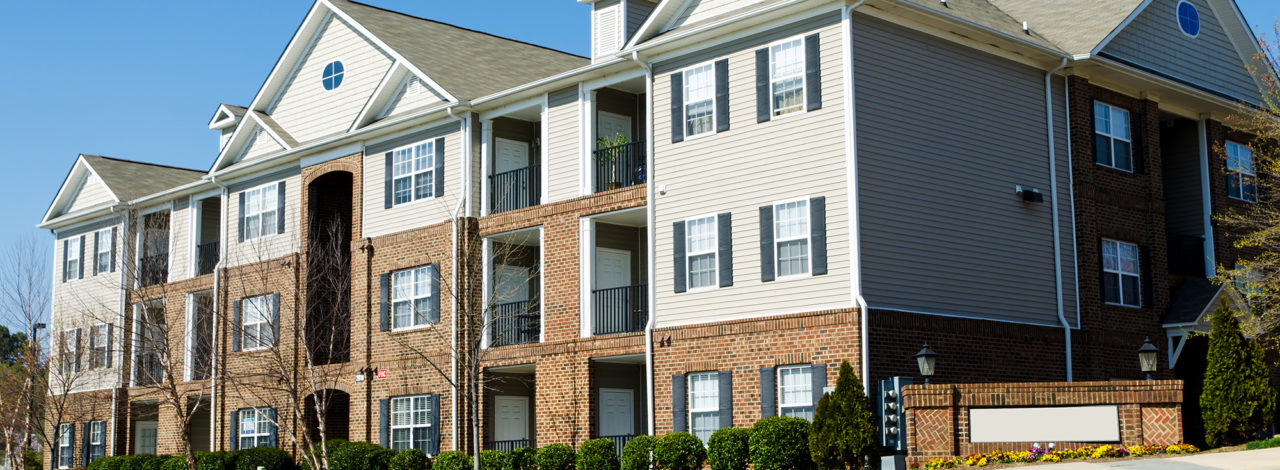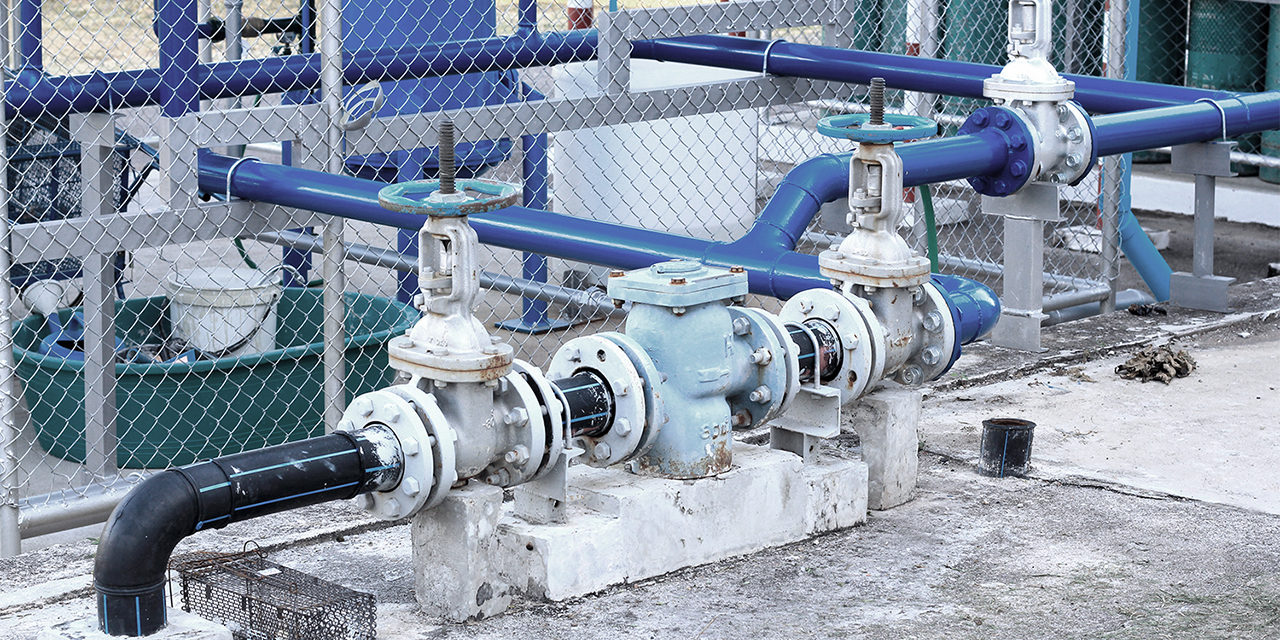A property manager’s worst nightmare is a mechanical problem that causes a major disruption to service, severe damage to the facility, and/or a decreased perception of value to current and prospective tenants. Commercial office buildings that close due to a mechanical failure cost the tenants revenue and can result in serious financial and reputation repercussions for the building owners and its managers.
Silent Building Killers May Not Be Obvious
Most of the time, building killers are NOT the obvious problems associated with mechanical failure. The true building killers are the underlying systemic causes—the silent killers—namely:
- Lack of predictive maintenance
- Lack of planning
- Lack of communication
Following are case studies to help you understand how you can help prevent your buildings from
falling prey to the silent building killers.
Silent Killer 1: Lack of Predictive Maintenance
Many building managers believe that preventive maintenance is all they need. The reality is, predictive maintenance will be more cost effective.
Preventive maintenance means developing a schedule based on a quantifiable use or the passage of time, like changing a car’s oil every 3,000 miles or three months. It generally requires the equipment to be shut down.
Predictive maintenance, on the other hand, is designed to help determine the condition of in-service equipment in order to predict when maintenance or replacement should be performed. Tasks are performed only when warranted in order to allow convenient scheduling of corrective maintenance, and to prevent unexpected equipment failures.
When you know which equipment needs maintenance, work and costs can be better planned. In other words, unplanned stops are now planned ones. Advantages include increased equipment lifetime, increased safety, ability to plan for technicians and spare parts, and less negative impact.
“The industry as a whole has moved away from preventive maintenance as businesses try to trim budgets, but because you can’t prevent equipment from ever failing, a building manager is asking for trouble without regular predictive maintenance,” observes Russell Rowzie, CPM, principal at Trimark Mechanical, a leading plumbing and HVAC mechanical services company.
Case Study: Blocked Water Pipe Destroys Two Sump Pumps
The Old Town section of Alexandria, Virginia has a very high water table, requiring local businesses to maintain functioning sump pumps. In this instance the client was a large commercial underground parking garage. Their sump pump stopped working and the facilities manager contracted its immediate replacement.
When Trimark Mechanical replaced it, the new sump pump quickly burned out. Trimark investigated and discovered a sediment buildup so severe that the 6”-diameter ejection pipe was completely blocked due to years of buildup and neglect.
Trimark’s service technicians replaced more than 50 feet of blocked pipe and installed a new sump pump. The final cost came to more than $40,000. The parking garage now contracts with Trimark Mechanical to clean the drain pipes annually at a cost of about $1,000 per year.
In this case, the disaster was not a flooded garage; rather, it was the high cost of neglect. Predictive
maintenance could have averted the much larger mechanical failure at a considerable savings.
“We find that after property managers have hired Trimark to fix a disaster or a near disaster,
they become big believers in predictive maintenance, and wish they had put regular maintenance
in place to prevent the problem in the first place,” Rowzie says.
Silent Killer 2: Lack of Contingency or Proactive Planning
No piece of equipment lasts forever. It’s a fact of life. Eventually it will break down, possibly causing
damage to the property and facility, but certainly causing inconvenience for all parties.
You can’t control when equipment will fail, and it could happen at the worst possible moment. The HVAC system could shut down during a heat wave or polar vortex. A tenant’s office could flood just before a crucial meeting.
Expect that equipment will fail at some point, and plan accordingly, whether through contingency planning or proactive planning.
Case Study: D.C. High Rise Leaks Water and Money
In a Washington, D.C. high-rise building the copper piping has thinned over time, and periodically sprouts leaks. Repairing one of these leaks requires shutting off the water and draining the building from top to bottom—a process that can take 8-10 hours—meanwhile inconveniencing tenants and costing the building owner every time it occurs.
A proactive solution would be to replace the entire piping system rather than continue repairing pipes on a piece-by-piece basis, which is what Trimark Mechanical recommended. They are working with this client to plan the replacement and finance the capital expenditure.
Contingency Planning vs. Proactive Planning
Replacement helps in other ways as well. If an HVAC system is old, it may be difficult to locate replacement parts or have them fabricated, resulting in an emergency repair that takes even longer. Contingency planning allows you to keep replacement parts on hand; proactive planning means phasing in the replacement of outdated systems before they fail.
Building in Redundancy
In many buildings, if one system goes down, the entire building goes down. To prevent this, another
method for anticipating future equipment failure is to build redundancy into the system. If two pieces of equipment perform the same function, each will last longer and can provide a fail safe should one piece break down.
Ideally, when equipment fails, tenants should not notice a disruption in their daily routines and services. Redundancy makes that possible. While many newer buildings are constructed with inherent redundancy, older buildings tend to rely on one boiler or chiller for the entire building. If you plan ahead for equipment failure, you can build in redundancy.
Case Study: Angry Tenants, Thousands of Dollars Lost, and a Tarnished Reputation
A 40,000 square-foot office building was served by a single 30-year-old air handler via a giant blower. A main component had deteriorated to the point where it couldn’t run without damaging other parts of the HVAC system, and in the heat of summer, it failed. It took a week for a local fabrication company to create a replacement part, during which time the building’s tenants lived without air conditioning.
Sixty spot coolers were placed throughout the building—at a cost of several thousand dollars—but were still unable to cool the building to a comfortable temperature. Angry tenants who suffered through the miserably hot week broiled, and thought they should not have to pay rent for that week. In response, the rent was reduced, at an additional cost to the building owners.
At this time, the building owners are planning a replacement of the existing HVAC system with a two-piece system during a time of the year when the work will be minimally disruptive to tenants. The building’s management team is working with Trimark Mechanical to phase out antiquated equipment and infrastructure throughout the building, and addressing necessary upgrades in wiring and other issues.
Silent Killer 3: Lack of Communication
A property manager is an intermediary, working as a conduit between the mechanical company and the building owners and tenants. Therefore it is absolutely essential that the property manager remains informed throughout every step in the repair or replacement process.
Trimark Mechanical is adamant about communication, and uses iPads and other advanced technologies to keep clients informed about any and all developments. This is critical because it allows the property manager to communicate the state of the building and its issues to property owner and tenants, make informed decisions about the property, and plan for the future.
“It really makes no difference if WE know that repairs are going well and as planned if we don’t
communicate that to the property manager,” Rowzie says. “How will the property manager
know that he doesn’t have to worry, and how can he inform the owners and tenants likewise? On
the flip side, if we run into unexpected challenges, we must also keep the property manager
informed so he can communicate this to his stakeholders and manage their expectations. It is our
job to help the property manager do his job.”
Communication Isn’t Just Between the Contractor and the Client
Lack of communication doesn’t just happen between the contractor and the client. In can also occur
internally between your field staff and your office staff, which can delay routine maintenance or needed repairs. As an example, a building’s onsite field maintenance staff may note that something isn’t working at its peak efficiency, but because the office staff is incentivized not to budget or spend “unnecessary” money, there is a lack of urgency. Because urgency isn’t communicated to a higher management level, the needed replacement or maintenance is deferred, potentially causing bigger trouble down the line.
“We make it our commitment to open the communication channels so that everyone understands
the ramifications of either taking or not taking an action,” Rowzie says. “Everyone involved in
the decision-making process needs a complete understanding of the cost/benefit analysis and the
consequences of any and all decisions.”
“We make every effort to communicate with the responsible parties to help them understand the
whole picture. We’ve heard far too often that important decision makers ‘Didn’t know,’ or
‘Didn’t understand the seriousness of the issue.’ That complaint occurs when decision makers
are not fully briefed.”
Case Study: “What We’ve Got Here is a Failure to Communicate”
A commercial office building in Reston, VA did have redundancy in its HVAC system, so when one part of the HVAC system went down, the second system should have kicked in. However, the building’s management had not budgeted to maintain the second cooling tower for the back-up system, so it wasn’t functional. Clearly there was a miscommunication and misunderstanding about the importance of the backup system, resulting in inconvenience for both the tenants and management, and additional expense.
Trimark Mechanical was called in and replaced the two bad motors at a cost of $15,000 each. With both systems up and running, the building owner now understands and appreciates the value of redundancy and a mechanical services company that excels in effective communication.
Action Items
To avert silent building killers, keep tenants happy and protect your bottom line:
- Contract for predictive maintenance
A building manager will never regret performing routine, regular maintenance that will keep small issues from turning into big ones. Tenants will always appreciate that a backup HVAC system kicked in on a frigid winter morning. - Plan today for equipment failure tomorrow
Partner with a professional mechanical services company that emphasizes the importance of predictive maintenance and helps you plan for future mechanical needs. - Demand clear, ongoing communication
Building owners and property managers will always be grateful for updates in the midst of a mechanical failure informing them of a problem’s magnitude and the steps being taken to resolve it.
Many property owners are aware of the “big” building killers such as mechanical failures, but unaware of these silent killers that can be even more deadly to any building’s safety and operations. To keep your property safe and functioning properly, partner with a mechanical services company that can help you develop a predictive maintenance schedule that works for your needs, help you plan for now and the future, and help you communicate with your staff and ours.
At Trimark Mechanical Services, we’re proud to bring you helpful information and professional service, and to be your mechanical services partner.
 Many older, garden-style apartment complexes run on outdated heating and cooling systems. Inefficient and often expensive utility costs put you at a competitive disadvantage. To make things worse, the time and cost of repair and maintenance are burdensome. Trimark Mechanical offers a variety of cost-effective solutions that not only reduce operational headache, but make older complexes more competitive in the rental market.
Many older, garden-style apartment complexes run on outdated heating and cooling systems. Inefficient and often expensive utility costs put you at a competitive disadvantage. To make things worse, the time and cost of repair and maintenance are burdensome. Trimark Mechanical offers a variety of cost-effective solutions that not only reduce operational headache, but make older complexes more competitive in the rental market. Increased costs and lost revenue make for a very bad mix. Since maintenance costs and large-scale replacements invariably come out of different budgets, it might be time to think strategically about replacement. Some utility companies even offer incentives for residential properties to switch to updated, energy-efficient systems. You may be surprised at the cost-savings associated with bulk replacement. Let our team perform a cost analysis on your property to determine the impact on your budget of replacement versus maintenance.
Increased costs and lost revenue make for a very bad mix. Since maintenance costs and large-scale replacements invariably come out of different budgets, it might be time to think strategically about replacement. Some utility companies even offer incentives for residential properties to switch to updated, energy-efficient systems. You may be surprised at the cost-savings associated with bulk replacement. Let our team perform a cost analysis on your property to determine the impact on your budget of replacement versus maintenance.





